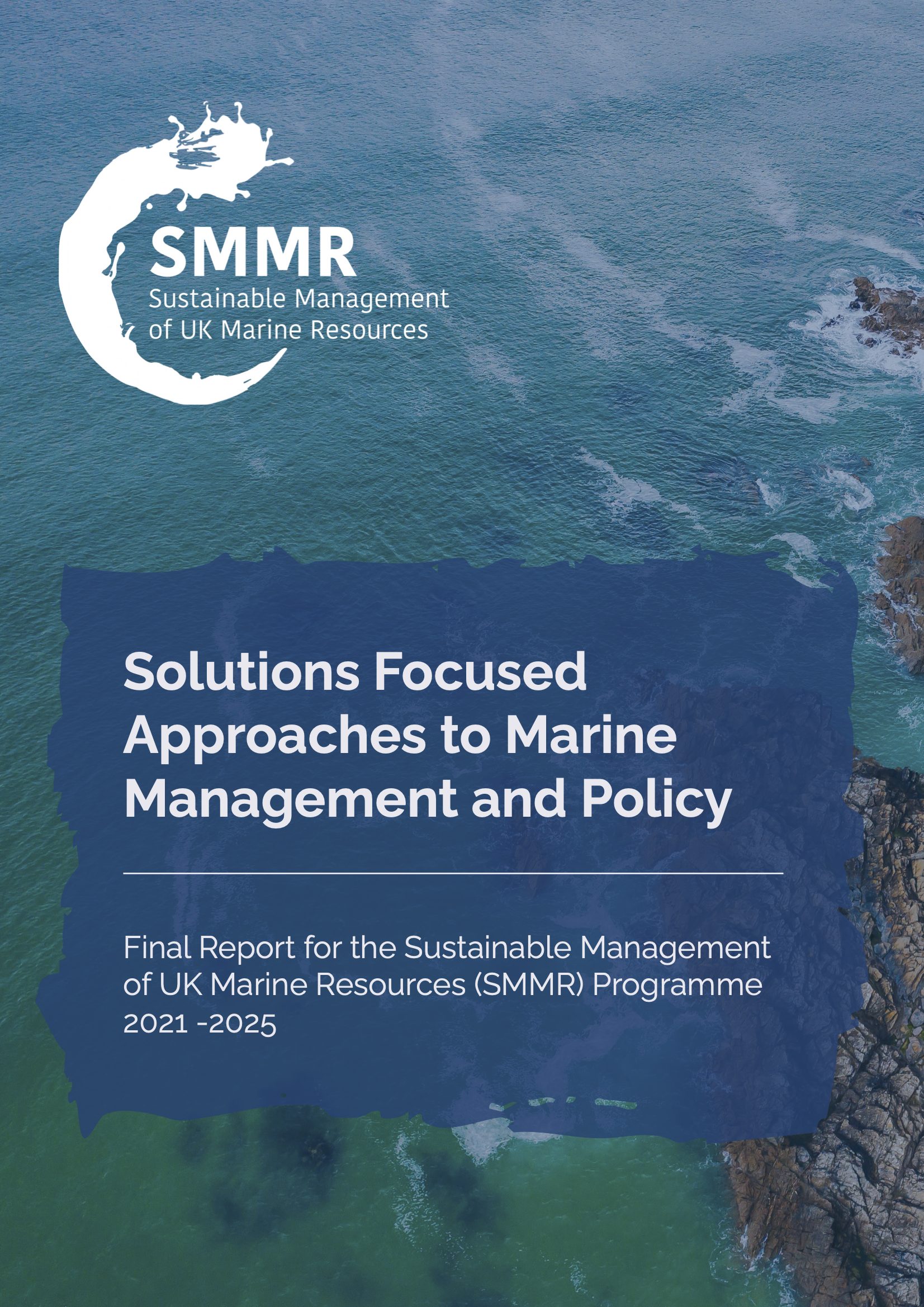
Throughout its six-year duration, the SMMR Programme brought together scientists, policy-makers, industries, and communities to address the urgent challenges facing our coasts and seas. From climate-smart planning and seagrass restoration to community resilience and inclusive governance, the SMMR Programme reshaped how the UK values and manages its marine resources. Read our final report to explore the wealth of practical tools and outputs – from mapping platforms and trade-off models to policy guides and community exhibitions – influencing decision-making across the UK.
Click this link to access the report.

The Sustainable Management of UK Marine Resources (SMMR) programme addressed critical marine research gaps that spanned a variety of disciplines, from natural capital to ocean literacy and systems-based management.
SMMR worked to break down barriers between science and policy and integrate disciplines, in order to form new marine research teams and build a strong research base to support decision-making within the UK Exclusive Economic Zone.
Although the Programme has finished, our ethos remains the same. By working together, we can improve management of the UK marine environment and, through better management, we can realise sustainable societal and economic benefits for the UK.
SMMR was comprised of two elements. The first was the Strategic Priorities Fund, the call for which opened in April 2020 and closed in October 2020. Successful applicants to the fund were announced in late July 2021, and the projects can be read about here. The second element of SMMR was SMMR-Net, a new, interdisciplinary community of researchers and policy stakeholders. The network was separate to the funded projects, and was for anybody interested in interdisciplinary working.
This work was jointly delivered by the Natural Environment Research Council (NERC) and the Economic and Social Research Council (ESRC) on behalf of UK Research and Innovation (UKRI), and in partnership with the Department for Environment, Food and Rural Affairs (Defra) and Marine Scotland.